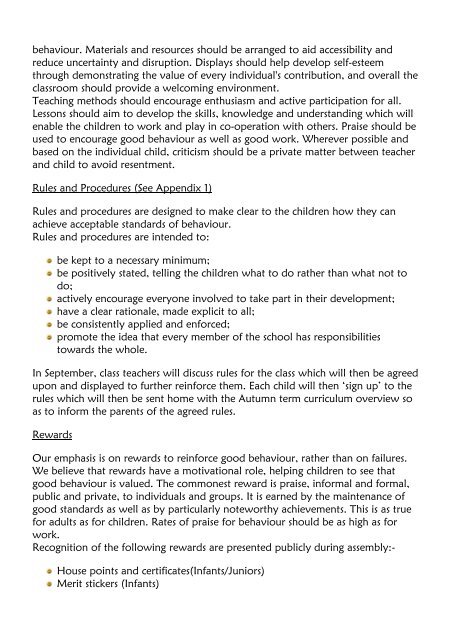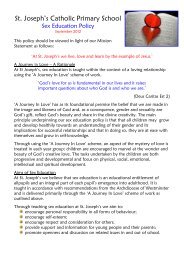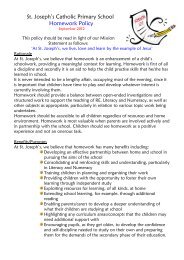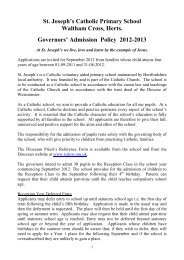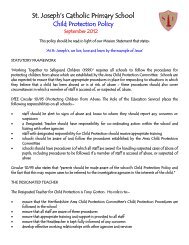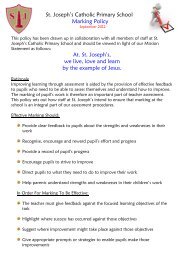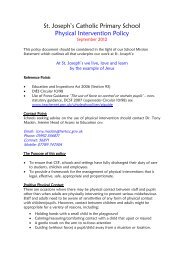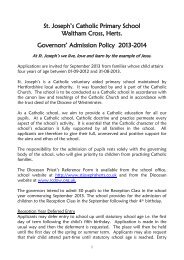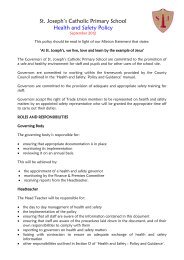Behaviour Policy - St. Joseph's Catholic Primary School
Behaviour Policy - St. Joseph's Catholic Primary School
Behaviour Policy - St. Joseph's Catholic Primary School
Create successful ePaper yourself
Turn your PDF publications into a flip-book with our unique Google optimized e-Paper software.
ehaviour. Materials and resources should be arranged to aid accessibility and<br />
reduce uncertainty and disruption. Displays should help develop self-esteem<br />
through demonstrating the value of every individual's contribution, and overall the<br />
classroom should provide a welcoming environment.<br />
Teaching methods should encourage enthusiasm and active participation for all.<br />
Lessons should aim to develop the skills, knowledge and understanding which will<br />
enable the children to work and play in co-operation with others. Praise should be<br />
used to encourage good behaviour as well as good work. Wherever possible and<br />
based on the individual child, criticism should be a private matter between teacher<br />
and child to avoid resentment.<br />
Rules and Procedures (See Appendix 1)<br />
Rules and procedures are designed to make clear to the children how they can<br />
achieve acceptable standards of behaviour.<br />
Rules and procedures are intended to:<br />
be kept to a necessary minimum;<br />
be positively stated, telling the children what to do rather than what not to<br />
do;<br />
actively encourage everyone involved to take part in their development;<br />
have a clear rationale, made explicit to all;<br />
be consistently applied and enforced;<br />
promote the idea that every member of the school has responsibilities<br />
towards the whole.<br />
In September, class teachers will discuss rules for the class which will then be agreed<br />
upon and displayed to further reinforce them. Each child will then ‘sign up’ to the<br />
rules which will then be sent home with the Autumn term curriculum overview so<br />
as to inform the parents of the agreed rules.<br />
Rewards<br />
Our emphasis is on rewards to reinforce good behaviour, rather than on failures.<br />
We believe that rewards have a motivational role, helping children to see that<br />
good behaviour is valued. The commonest reward is praise, informal and formal,<br />
public and private, to individuals and groups. It is earned by the maintenance of<br />
good standards as well as by particularly noteworthy achievements. This is as true<br />
for adults as for children. Rates of praise for behaviour should be as high as for<br />
work.<br />
Recognition of the following rewards are presented publicly during assembly:-<br />
House points and certificates(Infants/Juniors)<br />
Merit stickers (Infants)


